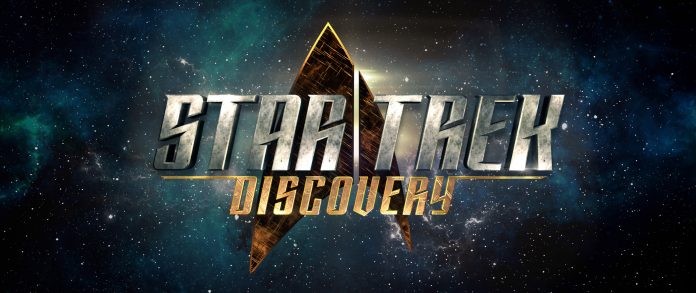The only “Star Trek” series I have seen in its entirety is “Deep Space Nine” although I have seen one-off episodes of “The Next Generation,” and read a lot of Wikipedia in my spare time. I didn’t like the new J.J. Abrams films, and the only older one I’ve seen was “Nemesis” — which I enjoyed.
“Discovery,” as the newest addition to a long lineage of “Star Trek” television series, tries to balance the expectations of the fandom with the reality of modern television. That means the retreading tropes that for some will seem charming— technobabble and sparky console stations— but that might be jarring or annoying for others (count me as part of this group). It signifies a reliance on callbacks, easter eggs, and a pleading need to generate the same level of wonder that the series was able to achieve in the past.
The problem is we’ve had years of great sci-fi in television and film that has raised the expectations and standards of audiences. You want gritty moral musings, and meditations on big ideas? Not only have most of those been done in past “Star Trek” series, but we’ve also had “BattleStar Galactica” in the meantime. You want hard science and compelling tense action? “The Expanse” will be coming back for its third season next year, and is amazing in that regard.
As is appropriate for 2017, the considerable amount of buzz around “Star Trek: Discovery” had more to do with the ongoing culture war regarding representation in media than it did expectations of the series as sci-fi. Reactionary fans and outraged hucksters alike bemoaned the diversity of the revealed cast as social justice warrior overreach and pandering to an insecure, needy, and easily offended audience.
And here I thought we hadn’t yet mastered projection technology.
Personally, I thought it was pretty cool to have two female leads, both of whom were women of colour. While not perfect, “Star Trek” does have a reputation of pushing the culture forward, and being progressive. Both of “DS9’s” central leads in latter seasons were black men, and that was in the ‘90s. The characters aren’t made any worse or less compelling by the sex and race of their actors — that’s mostly up to the writing staff.
The two-episode premiere of “Discovery” follows the command crew of the USS Shenzhou as they face the first direct contact the federation has had with Klingons in 100 years. First Officer Michael Burnham (played by Sonequa Martin-Green), a human raised by Vulcans after her parents died in a Klingon raid, pushes for confrontation against the wishes of Captain Philippa Georgiou (Michelle Yeoh). Doug Jones also gives a solid performance as the First Science Officer Saru, who comes from a new species that is known for their propensity to avoid violence. The acting is good, at least for a network TV show, but I believe the actors themselves are held back by the script and direction more than they are by their abilities.
Stilted and unnatural conversations are almost a “Star Trek” staple, along with forced attempts at “funny banter” and dialogue that is sometimes laden with exposition rather than nuance.
The Klingons, who for long-time fans are much different than the space bikers we’ve seen in past series, present an interesting opportunity for showing a new side of the species. T’Kumva (Chris Obi) is a zealot who wants to unite the 24 great houses, and restore a unified Klingon Empire against a common enemy. However, their dialogue is almost all in Klingon, and their makeup is incredibly heavy and complicated, which limits how much the actors can truly “act.” I wish they had used the conceit of dialogue between Klingons being in English, and in full Klingon when talking to the humans.
In all, I didn’t hate “Discovery’s” premiere, but at the same time, I wasn’t really drawn in or given much to be excited for. It felt cheap, familiar, and very much like a regular cable sci-fi series. However, I think there is hope in the opportunities inherent in exploring yet-unseen aspects of the early years of the federation (this takes place after “Enterprise” and before “The Original Series”), and also in what seems to be a tonal shift in the coming episodes. We haven’t even seen the USS Discovery yet, but previews for the season betray a darker and more serious storyline that will focus more on the characters and less on the trappings of the genre.
Hopefully it moves somewhere more meaningful, but if the premiere is truly a representation of the series — and not just a prologue and setup for Michael Burnham’s story (what the battle of Wolf 359 was for Benjamin Sisko in “DS9”) — then I think most people would be okay lowering their expectations.


